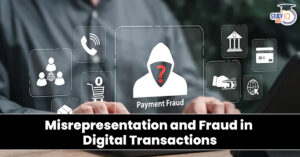Table of Contents
Context: The Reserve Bank of India (RBI) will be joining 12 international regulators in the Global Financial Innovation Network (GFIN)’s first-ever Greenwashing TechSprint to develop a tool to help regulators and the market effectively tackle the risks of greenwashing in financial services.
More on the News
- The Global Financial Innovation Network (GFIN) is a group of international regulators that aims to foster innovation in the financial services sector while ensuring consumer protection and market integrity.
- The TechSprint is a collaborative effort that brings together international regulators, firms, and innovators to address sustainable finance as a collective priority.
- The RBI is taking this initiative of joining the sprint to address the growing concern of greenwashing in the financial sector.
- As the number of investment products marketed as “green” grows, so does the risk of false or misleading claims being made about the Environmental, Social, and Governance (ESG) credentials of these products.
- This can harm consumer and investor confidence in the financial sector and undermine the credibility of sustainable finance as a whole.

What is Greenwashing?
- Greenwashing is defined as a growing tendency among firms and governments to label certain activities as climate-friendly, which would lead to emissions reduction, or avoidance of emissions.
- There have been instances where developed countries greenwash their normal business investments in developing countries, or their bilateral aid, by highlighting climate co-benefits of the financial flows, sometimes with very little justification.
- For example, a 2021 European Commission report found that 42% of green claims made by organizations were deceptive or exaggerated in some way.
How is Greenwashing done?
- Use of catchy terms: Greenwashing is done through inconsistent use of terms ‘net-zero’, ‘net-zero aligned’, ‘eco-friendly’, ‘green’ and ‘ecological’ but are not accompanied with satisfactory evidence to substantiate their claims.
- Hiding in small text: Companies tend to hide information about environmentally unsound practices in small text to deceive the reader.
- Cherry-picking data: Companies cherry-pick data from research to highlight green practices while obscuring others that are harmful.
- Scientific jargons: Companies use terms and jargons that can only be understood by experts. This allows them to masquerade their practices as environment friendly.
Why do we see an Increasing trend of Greenwashing?
- Environment consciousness: Environmentally aware and conscious customers are increasingly exploring planet-friendly, recyclable and sustainable ‘green’ products.
- They are ready to pay more for a product that is environmentally sustainable.
- Profit maximization: As customers are becoming environmentally conscious, companies have found that they could make more money out of a product by labeling it ‘environment-friendly’.
- Brand value boosting: Many corporations use greenwashing to improve public perception of their brands. This will give them market recognition.

Examples of Greenwashing
- Volkswagen scandal: In Volkswagen scandal, the German car company was found to have been cheating in emissions testing of its claimed green diesel vehicles. This was a case of greenwashing.
- Palm oil company claims: Multinational palm oil company of Indonesia had claimed that palm oil plantations provide home to flora and fauna. In reality, palm oil plantations contribute to deforestation.
- Save the Towel: During a stay in Fiji, Environmentalist Jay Westerveld came across notes next to towels in a particular resort, asking customers to reuse the towels and help reduce ecological damage to the ocean and the coral reefs.
- While it appears to be an environmentally-friendly practice, in reality, the intention was for the hotel to save up on laundry bills.
- Made of Bamboo: Retailers Kohl and Walmart were fined $5.5 million for misleading customers about their home furnishing products being made of bamboo.
- In reality, they were made of rayon, which is made from cellulose whose manufacturing requires the use of harmful chemicals such as sodium hydroxide that are hazardous to the environment.
- Coca-Cola campaign: Coca –Cola was accused of greenwashing after promoting its new line of the low-sugar version, Coca-Cola Life, as a “green, healthy alternative”.
- “Reef safe” sunscreens: Several of Banana Boat’s “reef safe” sunscreens contain harmful chemicals that negatively impact coral reef environments.
Impact of Greenwashing
- Boost carbon-emitting business: Greenwashing enhances the image of the entity, sometimes even helping them boost their business.
- Consumers are more likely to unknowingly buy a product or service that is highly polluting, being unaware of its negative environmental impacts.
- Pushing towards disaster: Greenwashing presents a false picture of the progress made on climate change front. People believe the same and their lack of action pushes the world towards disaster.
- Expensive: Apart from misleading users on the climate front, entities use greenwashing to increase the price of products, by labeling them environment friendly. Consumers are forced to pay higher prices.
- Brand degradation: If the claim of greenwashing is proved to be false, the brand value of the company will seriously be affected.
- Ex: Emission scandal negatively affected the brand value of Volkswagen motors.
- Promote bad practices: The false label of environment-friendly can promote bad disposal or usage practice among the consumers.
- Ex: False label of bio-degradable can promote practice of unscientific disposal of plastic by consumers.
Combating Greenwashing
- Regulating/monitoring entity: There must be authorized entities that monitor/verify claims made by private companies or governments about their climate-friendly actions. This will ensure that claims are made only after due study.
- Skepticism: Users expressing skepticism about the climate-friendly products can force companies to take additional studies to prove that their products are genuinely climate-friendly.
- Making the entire value-chain eco-friendly: Private entities must work towards reducing emissions across their entire value chain and not limit their efforts to only one part of the chain.
- Carbon credit buying: Companies emitting greenhouse gases and later buying carbon credits for balancing must not be allowed to claim their products as environment friendly.
- Compulsory disclosures: Entities must transition from voluntary disclosures (relating to net emissions) to compulsory disclosure. This will increase transparency and curb the practice of greenwashing.
Way Forward
- Corporate ethics: Companies and corporate entities must desist from greenwashing practices as it blatantly violates corporate ethics.
- Apart from directly impacting environment, greenwashing will exploit human sentiments.
- User awareness: Users and customers must not fall for greenwashing practices without looking at relevant proof. This can deter entities from using such tactics.
- Government responsibility: Government must take responsibility for curtailing practices of greenwashing. Regulation of ‘eco-friendly’ claims and stringent punishment for wrong claims must be implemented.


 Personality Rights in India: Expanding P...
Personality Rights in India: Expanding P...
 Judicial Recognition of Child Traffickin...
Judicial Recognition of Child Traffickin...
 Misrepresentation and Fraud in Digital T...
Misrepresentation and Fraud in Digital T...

























